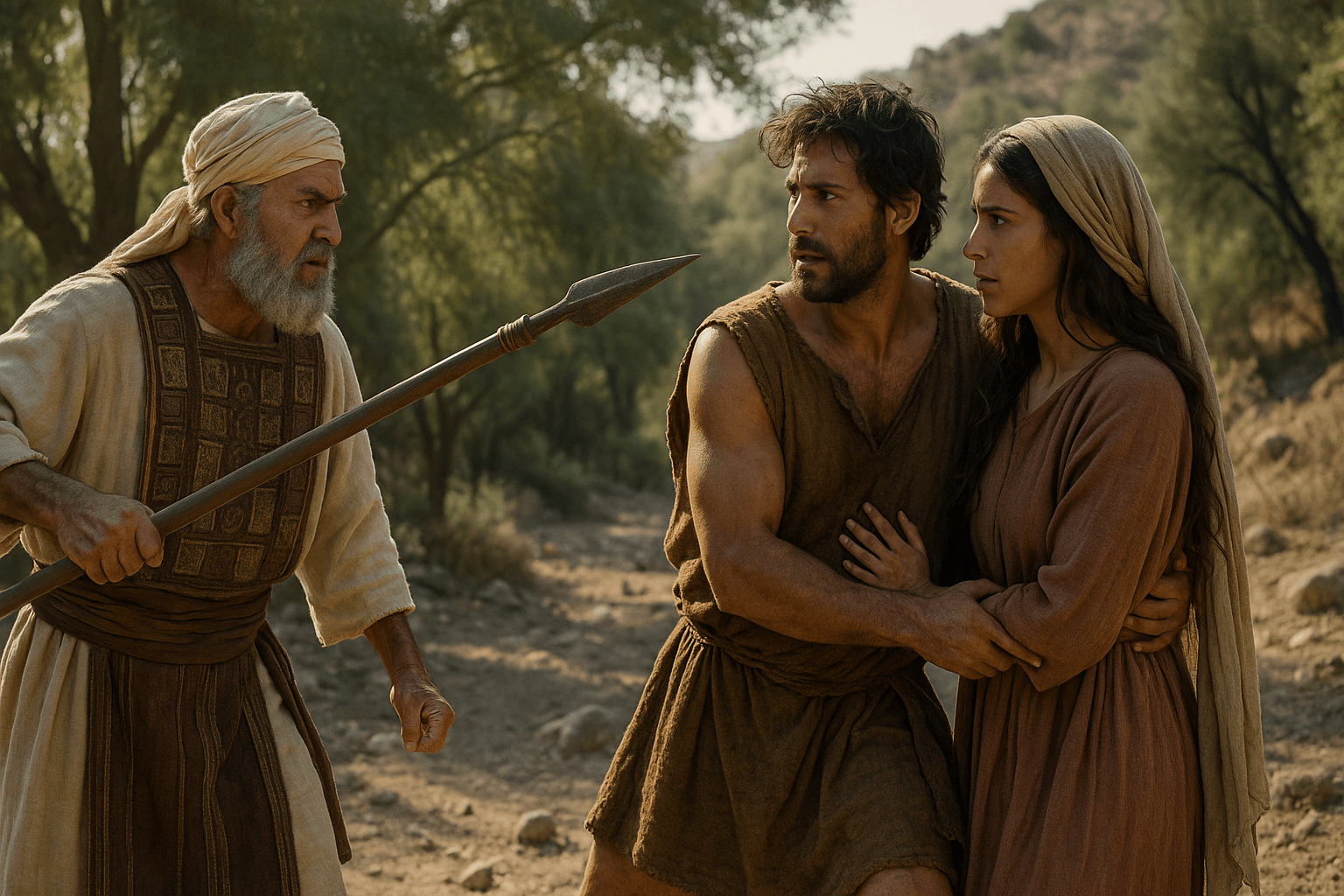Phinehas is a relatively lesser-known but significant figure in the Bible, often remembered for his actions that were pivotal in maintaining Israel's purity and devotion to God. He was the son of Eleazar, the high priest, and grandson of Aaron, making him a part of the priestly lineage. Below are 10 interesting facts about Phinehas in the Bible.
1. Phinehas Was a Priest
Phinehas was a direct descendant of Aaron, the brother of Moses, and was born into the priestly family of Israel. His father, Eleazar, succeeded Aaron as the high priest, and Phinehas followed in his father’s footsteps by becoming a priest. His role was not only to offer sacrifices but also to uphold the moral and religious law of the Israelites.
"Phinehas son of Eleazar, the son of Aaron the priest, has turned my anger away from the Israelites, since he was as zealous for my honor among them as I am." – Numbers 25:11 (NIV)
2. He Stopped a Plague Among the Israelites
One of the most notable moments in Phinehas’s life came when he acted decisively to stop a plague among the Israelites. The plague had broken out because the Israelites had engaged in idolatry and immorality with Moabite women. Phinehas intervened when he saw an Israelite man bring a Midianite woman into his tent, showing both zeal for God’s laws and a desire to maintain the purity of the community.
"When Phinehas son of Eleazar, the son of Aaron the priest, saw this, he left the assembly, took a spear in his hand and followed the Israelite into the tent. He drove the spear into both of them." – Numbers 25:7-8 (NIV)
3. His Zealous Act Earned God's Favor
Phinehas’s act of zeal, killing the Israelite man and the Midianite woman, earned him God’s favor. God spoke to Moses, saying that Phinehas had turned away His wrath because he was as zealous for God's honor as God Himself. This act was seen as righteous because it put an end to the sin and disobedience that had spread throughout Israel.
"Phinehas son of Eleazar, the son of Aaron the priest, has turned my anger away from the Israelites, since he was as zealous for my honor among them as I am." – Numbers 25:11 (NIV)
4. Phinehas Was Rewarded With a Covenant of Peace
In recognition of his zeal, God made a special covenant of peace with Phinehas and his descendants. This covenant ensured that Phinehas and his family would hold the priesthood forever. God also promised that Phinehas’s descendants would continue to serve as priests for generations to come.
"I give him my covenant of peace. It will be to him and his descendants after him the covenant of a lasting priesthood, because he was zealous for the honor of his God and made atonement for the Israelites." – Numbers 25:12-13 (NIV)
5. Phinehas Led the Israelites in Battle
Phinehas was not only a priest but also a warrior. During the battle against the Midianites, he played an important role. Though his actions were primarily religious, Phinehas was a key figure in executing God’s judgment on the Midianites for leading the Israelites into sin.
"Phinehas son of Eleazar, the son of Aaron, the priest, did as the Lord commanded." – Numbers 31:6 (NIV)
6. He Was Part of the Leadership During the Wilderness Journey
Throughout the Israelites’ journey in the wilderness, Phinehas served as one of the key leaders. His role was not only religious but also significant in ensuring that the Israelites remained faithful to God's commands. His actions in dealing with sin and idolatry were crucial in shaping the spiritual life of the Israelites.
"Phinehas the son of Eleazar, the son of Aaron the priest, is the one who stood up and interceded for the people." – Numbers 25:11 (NIV)
7. Phinehas Was Zealous for God’s Holiness
Phinehas’s zealousness for God’s holiness was not limited to a single act. His entire life and priestly duties reflected his passion for maintaining purity in the community of Israel. He demonstrated his commitment to God’s holiness by confronting sin head-on, even when it was difficult or controversial.
"He was as zealous for my honor among them as I am." – Numbers 25:11 (NIV)
8. Phinehas Played a Role in the Book of Joshua
In the book of Joshua, Phinehas continues to serve as a priest and leader. He played a significant role during the time of the conquest of Canaan, when the Israelites were settling into the promised land. He served as a representative of the priestly line and was involved in various decisions concerning Israel’s worship.
"Phinehas son of Eleazar the priest, and the leaders of the tribes of the Israelites, presented the whole assembly to the Lord at Shiloh." – Joshua 22:12 (NIV)
9. Phinehas's Legacy Was Carried on by His Descendants
The covenant made with Phinehas ensured that his priesthood would last forever. This promise was fulfilled as his descendants continued to serve as priests in Israel for generations. The legacy of Phinehas’s commitment to God’s holiness was passed down through his lineage.
"It will be to him and his descendants after him the covenant of a lasting priesthood." – Numbers 25:13 (NIV)
10. Phinehas Was Revered as a Righteous Man
Phinehas is regarded as one of the great figures of righteousness in the Bible. His actions, driven by a deep commitment to God’s laws and the well-being of Israel, made him a model of zeal and righteousness. He was honored by God for his steadfast devotion to justice and holiness.
"Phinehas son of Eleazar, the son of Aaron the priest, has turned my anger away from the Israelites, since he was as zealous for my honor among them as I am." – Numbers 25:11 (NIV)
























